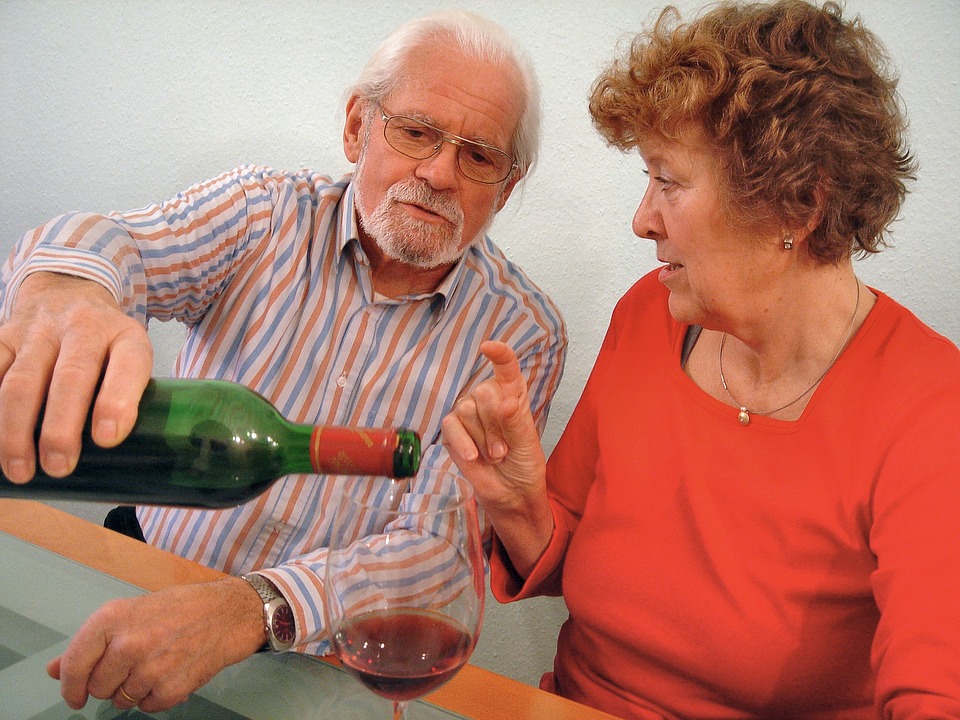Alcohol is a risk factor for cognitive impairment and older people are more physiologically vulnerable, but they are not cutting back
Researchers warn that health services are ill-prepared for unprecedented risky drinking among older people as the baby-boomer generation ages.
Dr Adrienne Withall, of the University of NSW’s School of Public Health and Community Medicine, says there is growing evidence that alcohol is a risk factor for cognitive impairment while it is well known that older people are more physiologically vulnerable to its effects.
But unlike previous generations, Australians in their 60s and 70s are not cutting back.
“We are certainly in unknown territory as to who is best to manage this issue and what sort of services will suit people,” she said.
“In a time when we are seeing a decline in weekly alcohol intake among young people, we are seeing that trend starting to reverse in the older baby-boomer generation.
“We are starting to see these findings emerge in national surveys, and the trend is the same in New Zealand, the US and the UK. It is not just the prevalence, but also the levels people are drinking at.”
In New Zealand, up to 40% of older adults are classed as hazardous drinkers, and recent Victorian ambulance data shows that the biggest growth in ambulance call-outs related to alcohol intoxication is in the over-50s group.
“There is a tendency for people in their 60s and some in their 70s to drink more; we are also seeing this reflected in people presenting to hospital services,” Dr Withall said.
She considered conflicting health information could be partly to blame.
“I think it’s really hard for people to weigh up the evidence, because for many years we have been saying drink a glass of red wine every night because it’s really good for your brain health.
“We’ve been putting this guidance out there that that a glass or two at night is just like following the Mediterranean diet.”
While current Australian guidelines don’t specify a limit for alcohol consumption by older people, Dr Withall said opinion was leaning toward recommending half the general limit of two standard drinks per day with two alcohol-free days per week.
Older patients would also benefit from being shown precisely the size of a 100ml standard drink, she added.
“Certainly, in our research some people resented being asked how much they were drinking, but at the same time a significant number of people said they would appreciate it if their GP told them what the drinking guidelines were and had a discussion about it.
“We think that’s something that could be embedded in a general health check. If asking these questions becomes a routine thing, as part of normal age-related screening, and showing them how much is in a standard drink, the question would not be so polarising for people.”
For patients with existing cognitive impairment, however, she would advise abstinence.
“If you have been diagnosed with cognitive impairment, such as dementia, there is probably no safe level of drinking. We know that it accelerates the rate of cognitive decline.”
Doctors ”should have the confidence” to ask older patients about their drinking and perhaps engage in some social prescribing as well, she said.
“If people are drinking out of social isolation, there’s an argument for finding out what else is going on.
“There’s a significant group who are drinking out of loneliness and depression in later life. We’ve got a lot more people who are ageing alone; there has been a suggestion that loneliness could be the new number one public health crisis.”
Dr Withall presented her findings at the Australasian Professional Society on Alcohol and other Drugs (APSAD) conference in Auckland in early November.
Professor Michael Farrell, director of the National Drug and Alcohol Research Centre at UNSW, told the conference that the number of older people needing treatment for alcohol-use disorders was expected to rise substantially in coming years.
“It is critically important that we improve our response now,” he said.


